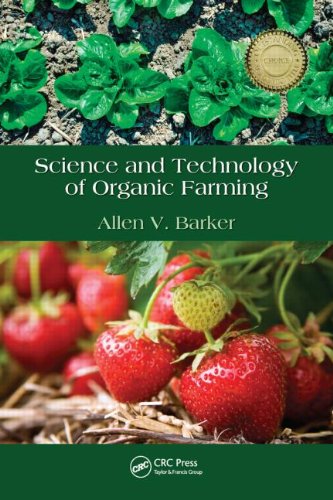

Most ebook files are in PDF format, so you can easily read them using various software such as Foxit Reader or directly on the Google Chrome browser.
Some ebook files are released by publishers in other formats such as .awz, .mobi, .epub, .fb2, etc. You may need to install specific software to read these formats on mobile/PC, such as Calibre.
Please read the tutorial at this link: https://ebookbell.com/faq
We offer FREE conversion to the popular formats you request; however, this may take some time. Therefore, right after payment, please email us, and we will try to provide the service as quickly as possible.
For some exceptional file formats or broken links (if any), please refrain from opening any disputes. Instead, email us first, and we will try to assist within a maximum of 6 hours.
EbookBell Team

4.7
36 reviewsWinner of a CHOICE Outstanding Academic Title Award for 2011!
Organic farming is not only a philosophy, but also a well-researched science that combines soil fertility, plant pathology, entomology, and other biological and environmental sciences. Science and Technology of Organic Farming is a concise, readily applicable resource for understanding the scientific basis for organic farming and the technology required to achieve adequate yields through plant nutrition and protection. It provides the tools necessary to dispel hampering myths about organic farming so farmers – regardless of their experience – can strengthen their own growing practices.
Emphasizes Foundations of Organic Farming – Composting, Cover Crops, & Farm Manures
Addressing relevant issues and concepts along with practical applications, chapters cover soil fertility and plant nutrition; individual plant requirements; liming; farm manures, green manures, and composts; mulching and tillage; and weed, insect, and disease control, as well as companion planting and storage. The text also includes more than 50 illustrations and a glossary with common technical and scientific terms used in conventional and organic agriculture. This valuable reference is ideal for farmers, agricultural advisers, and soil and plant scientists – in both academia and industry.